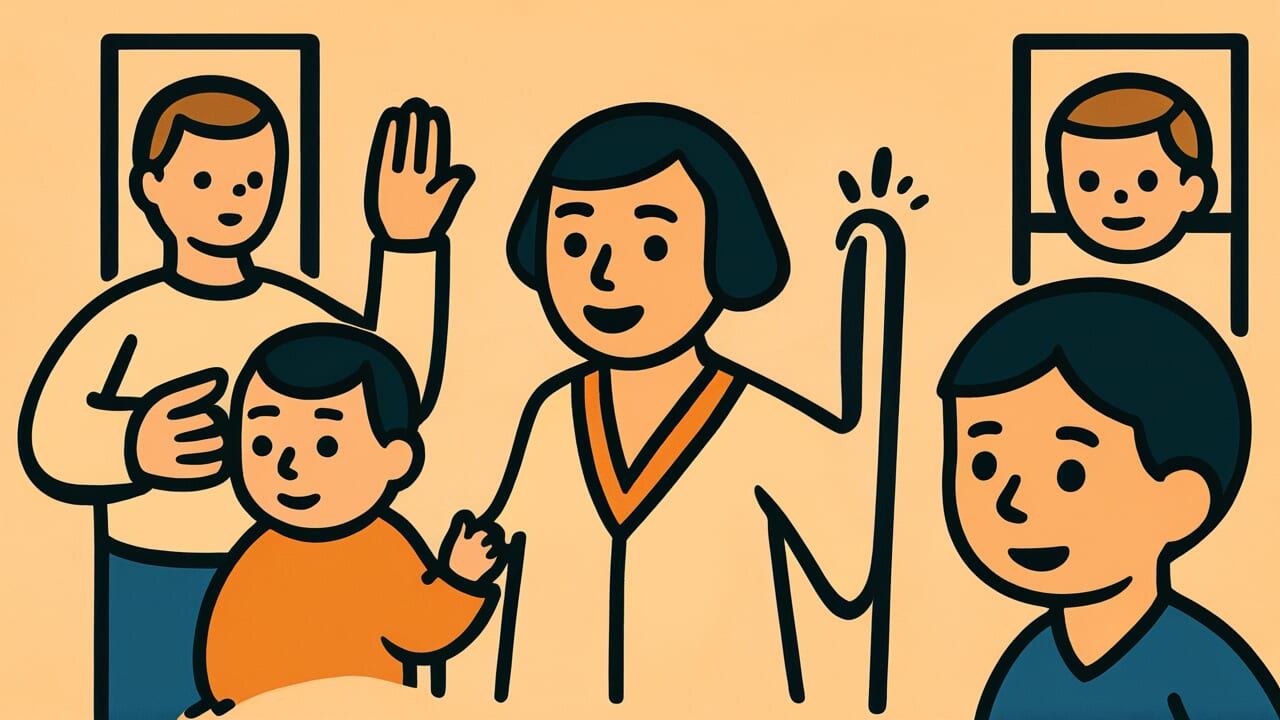How to Read “Those who dote on children have no children”
Kobon’nō ni ko nashi
Meaning of “Those who dote on children have no children”
“Those who dote on children have no children” is a proverb that describes an ironic phenomenon in life. People who desperately want children often struggle to have them.
It refers to situations where those who wish most strongly for children and think about it constantly find it hardest to be blessed with them.
This proverb reveals the mysterious relationship between intense desire and reality. People use it to comfort those struggling to conceive.
Sometimes the person experiencing this uses it self-deprecatingly. Even today, it expresses life’s absurdity—how what we want most can be hardest to obtain.
The proverb captures the complexity of human psychology. When we want something too intensely, we lose our peace of mind. This tension can actually push away the very thing we desire.
Origin and Etymology
No clear written records document the origin of this proverb. However, we can make interesting observations from how the phrase is constructed.
The term “kobon’nō” has been used since the Edo period. It describes parents who love and cherish their children deeply.
In this proverb, however, “kobon’nō” refers to a different stage. It describes the intense longing for children before they arrive.
This proverb emerged from our ancestors’ observations of human psychology and fate’s irony. They witnessed a pattern repeatedly.
People who desperately wanted children often remained childless. Meanwhile, those who didn’t particularly wish for children would conceive. This absurd phenomenon was common enough to inspire a saying.
During the Edo period, such ironies of life were familiar topics among common people. Medical technology was undeveloped then.
Whether someone had children depended largely on fate. People had no choice but to face the gap between their wishes and reality.
From these accumulated experiences, this phrase was born. It has been passed down through generations ever since.
Usage Examples
- That couple had even chosen baby names before marriage, but “those who dote on children have no children”—ten years have passed
- “Those who dote on children have no children” is so true—we conceived right after we gave up trying
Universal Wisdom
The proverb “Those who dote on children have no children” contains deep insight. It explores the strange relationship between human desire and destiny.
Why do we feel that what we want most is hardest to obtain?
Behind this phenomenon lies a psychological mechanism. When we want something intensely, our minds become tense. This tension creates anxiety.
That anxiety affects our mind and body. Ironically, it pushes us further from what we desire. Our ancestors keenly understood this aspect of human nature.
Looking deeper, this proverb addresses a fundamental human problem: attachment. The more we cling to something, the heavier that attachment becomes.
It disrupts the natural flow of life. This happens not just with having children. The same pattern appears in career success, relationships, and every area of life.
People have long known the danger of wanting something too intensely. That’s why this proverb teaches more than just about having children.
It speaks to the importance of not trying too hard in all aspects of life. Hold your wishes while maintaining peace of mind.
This delicate balance is the path to happiness. That’s what our ancestors tried to convey through this wisdom.
When AI Hears This
The second law of thermodynamics teaches us that disorder always increases in closed systems. Yet living systems don’t violate this law.
Instead, they cleverly use it. Reproduction actually requires a moderate degree of disorder—randomness.
Consider genetic recombination, for example. Parents’ genes mix randomly, creating unpredictable diversity. This diversity is the source of strength for adapting to environmental changes.
But excessive doting on children represents an attempt to perfectly control every element of life. Diet, exercise, stress, timing—trying to optimize everything.
Thermodynamically speaking, this is like forcibly lowering the system’s entropy.
The problem is that such excessive ordering requires enormous energy. Consuming energy in the form of psychological stress keeps the body in constant tension.
The sympathetic nervous system becomes dominant. This moves us away from the relaxed state necessary for reproduction—a state that allows appropriate disorder.
Ironically, the more we aim for perfection, the more we kill life’s inherent power of fluctuation. The laws of the universe apply mercilessly even to human effort.
Lessons for Today
This proverb teaches modern people about “the power of letting go.” Not just children, but career promotions, meeting ideal partners, achieving dreams.
We desire many things daily. But when those wishes turn into attachment, we actually move further from what we want.
What matters is maintaining peace of mind while holding wishes. Don’t become too attached to outcomes. Working toward goals and releasing results seem contradictory.
But actually, both can coexist. Do what you can, then trust the natural flow. This mental flexibility can sometimes attract better results.
Modern society strongly values the idea that “hard work always pays off.” Yet life certainly has aspects we cannot control.
This proverb doesn’t deny effort. It teaches the importance of not trying too hard. Take a deep breath and relax your shoulders.
In such moments, unexpected happiness might arrive.



Comments